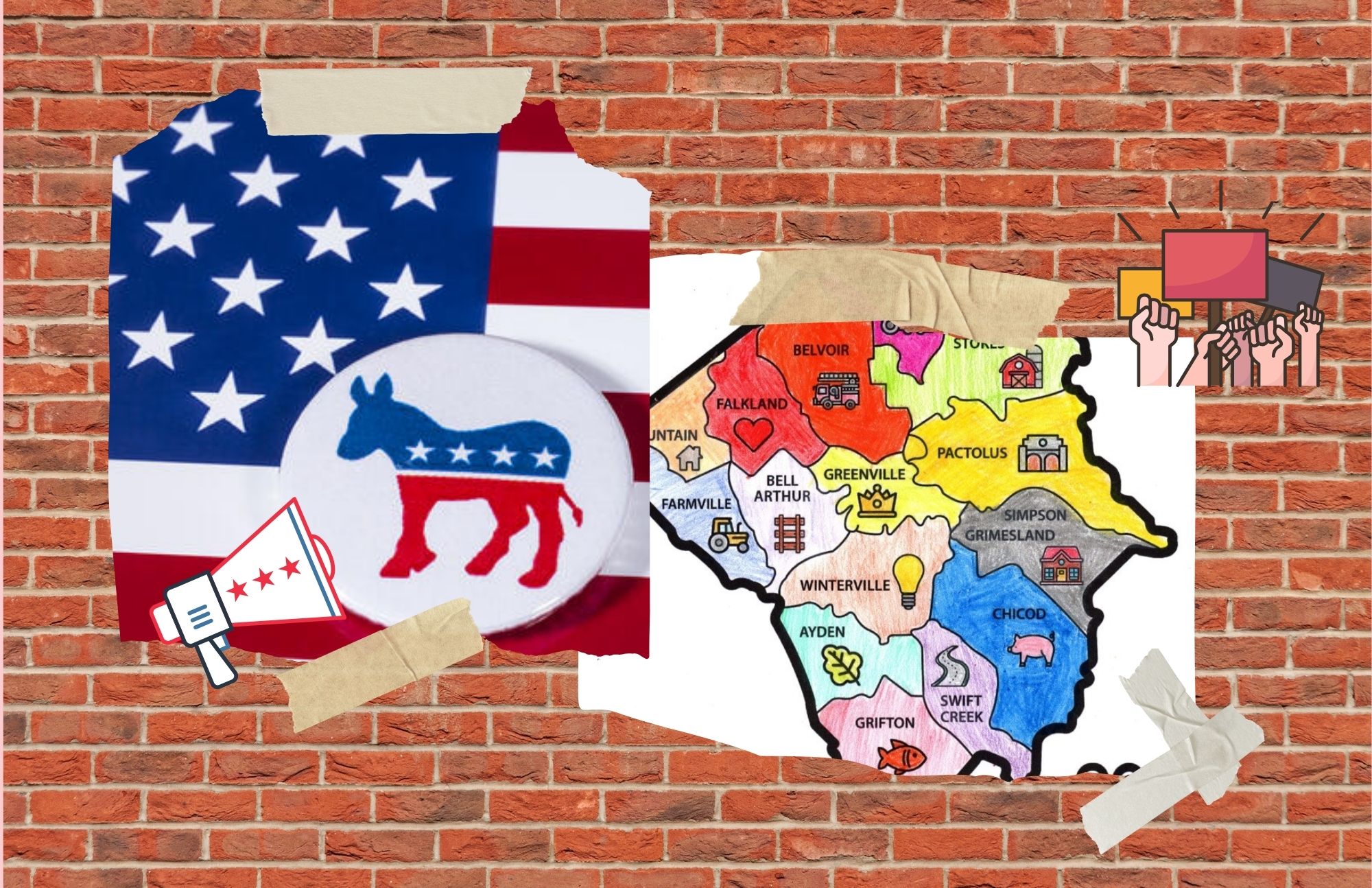East Carolina University student political activists evaluate the Democratic Party’s future in Pitt County as an increasing number of voters choose to register as unaffiliated.
Jay Lampa, a political science major at ECU, said he wasn’t surprised by the recent presidential election results. He said the democrats could have done more to address issues like workers’ rights, environmental justice and Palestine.
Lampa said the party’s handling of the election gave the republicans momentum, explaining that many believed Joe Biden should have dropped out sooner. He said the culture within the party’s national administration also played a role in causing division that contributed to their loss.
“But it’s not so much what they did wrong this election,” Lampa said. “As it is about what their opposition did right.”
During last year’s election, while North Carolina turned red, Pitt County itself was blue. According to the NC State Board of Elections, Democratic candidate Kamala D. Harris won Pitt County with 52.33% of the vote, totaling 45,595 votes, while Republican candidate Donald J. Trump received 40,403 votes.

Lampa said one of the reasons why Pitt County remained blue was because of organizations in the area such as the North of the River Association, the Coalition Against Racism, NAACP and Democracy NC. He said these organizations have encouraged greater involvement in last year’s elections.
Another factor in the democrats’ win in Pitt County is the strong reputation of the NC Democratic Party, said Thomas Remington, president of College Democrats at ECU.
Remington said the state party shows up everywhere, consistently engages with every county and town. He said they actively reached out to people who not only agreed with the party but also with those who don’t identify with it.
“Anything tied to Washington, DC is automatically more unpopular,” Remington said. “There’s a lot of work to be done locally and statewide so that we don’t rely on the image of the national party.”
Although democratic candidates won Pitt County in 2024, the number of voters registered with the party has steadily declined.
According to NC voter registration statistics for Pitt County, the number of registered democrats dropped from 53,265 in 2020 to 48,726 in 2024. However, compared to other parties, democrats still have the highest number of registered voters, with a decline of less than 1% from 2021 to 2024.
In contrast, republican registrations increased from 29,540 in 2021 to 32,020 in 2024. Meanwhile, the unaffiliated party experienced the largest growth, rising by 31% from 35,548 in 2021 to 46,762 in 2024.

“I think it’s because the Democrats have lost any semblance of a cohesive and coherent message,” Rob Yates, communications director for the Libertarian Party of North Carolina, said.
Yates said people in eastern North Carolina value tradition, prioritizing family and self defense. He said democrats openly seek to strip away the right to self defense, while republicans talk a big game but fail to take meaningful action to protect the second amendment rights.
“Democrats are addicted to this identity politics,” Yates said. “And the republicans make a much bigger deal out of it than it’s needed.”
Yates said if republicans or democrats are dissatisfied with their party’s principles, they should join the Libertarian Party. He explained that when either party wins, they use their power to impose their values and policies, often leaving many people unhappy.
In contrast, the Libertarian Party provides an opportunity to test ideas, supports individual freedoms and allows people to live according to their own choices, Yates said.
“I think you’re gonna see unaffiliated as the biggest group in North Carolina now,” Yates said. “And the Libertarian Party in North Carolina had a really good year last year.”
Dylan Knight, a former co-chair of the Young Democratic Socialists at ECU, said he personally doesn’t label himself as a democrat on his registration and that many liberals and progressives are protesting the Democratic Party by registering under other affiliations.
Knight said lately democrats seem to overlook their own power and need to take a more proactive stance in blocking some of the republicans’ more dangerous policies.
“A lot of the inner party apparatus refused to sort of accept the economic populist message and I think that’s a failing,” Knight said.
According to Gallup data released in February 2025 on partisans’ preferences for their parties’ ideological direction, shows that a plurality of democrats now want their party to become more moderate, rising from 34% to 45%, while those who prefer a more liberal stance decreased from 34% to 29%.
Gallup explains that the party has grown more ideologically divided. Therefore, to maintain its hold on Pitt County, the party might need to adapt to the evolving political landscape and shifting ideologies of the region, rather than ignoring them.
